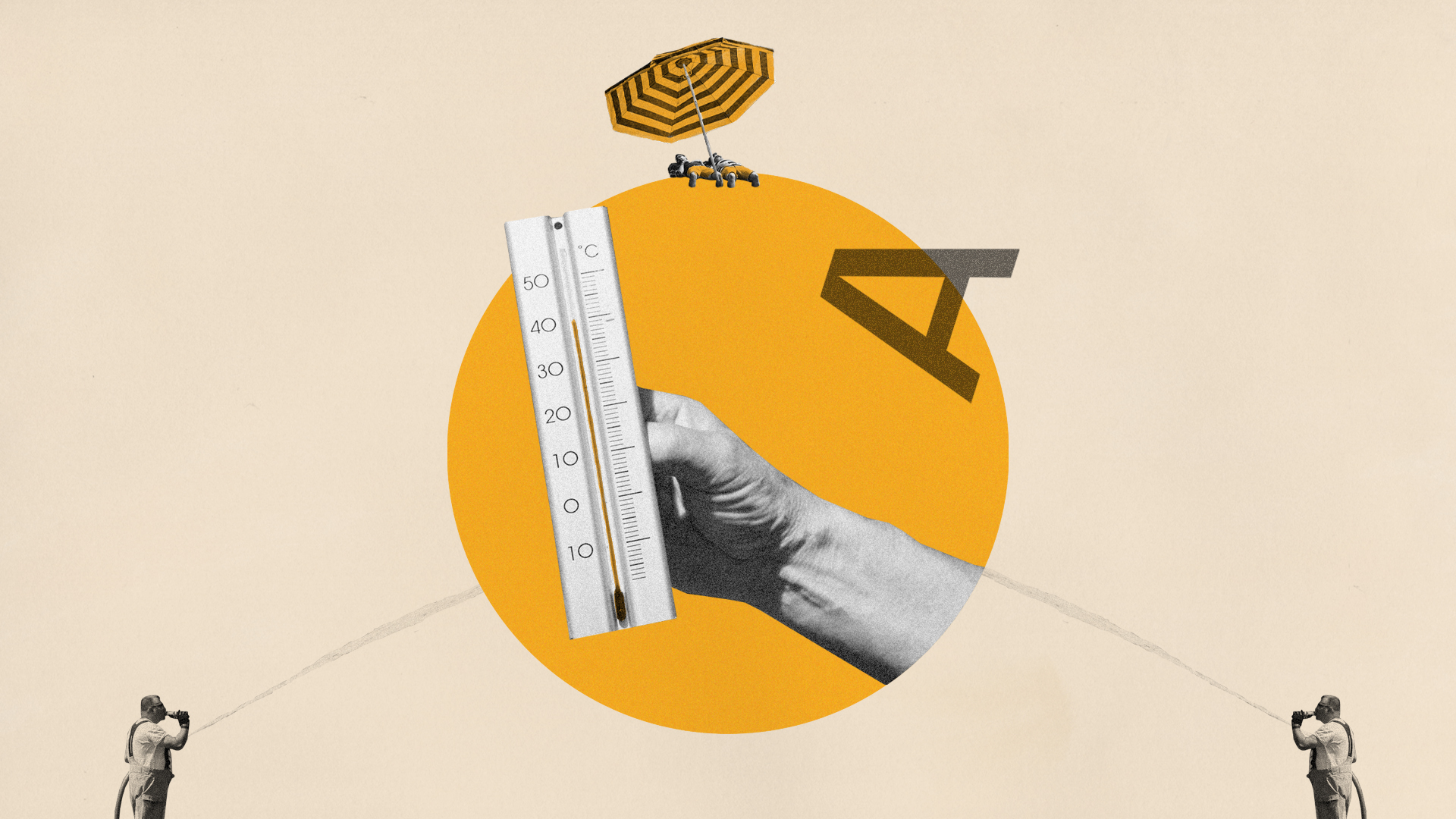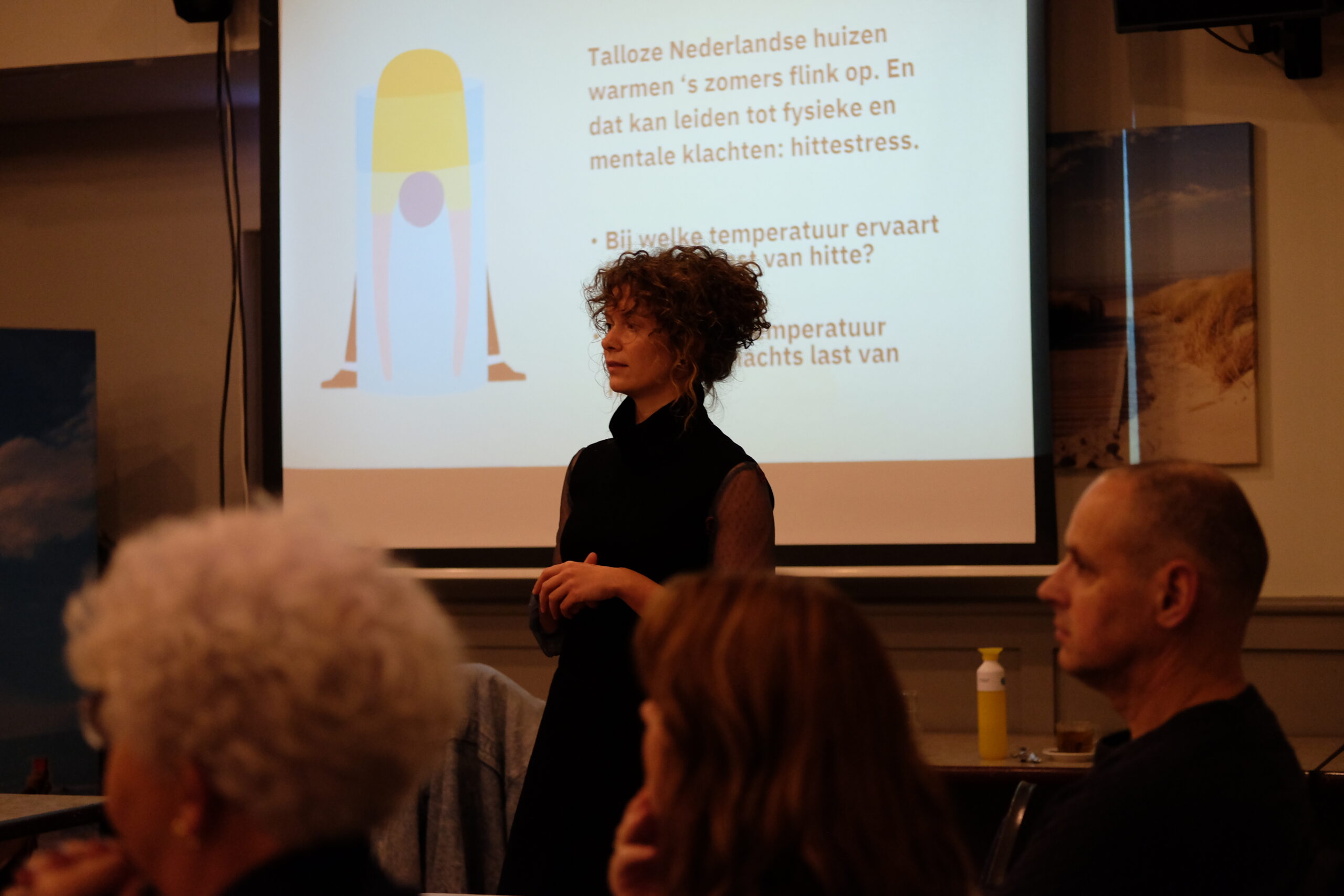Project Description:
Since heat waves are becoming more common in the Netherlands and can have serious health consequences for vulnerable people, Thermo-staat opens the doors for scientific exploration, not just for data collection, but for co-creating knowledge and driving real-world impact. In Thermo-staat, citizen scientists collect data on how heat stress is experienced in their own houses in the Netherlands.
Together with scientists and journalists, they share data, report on the impact of heat stress and discuss ways to reduce its effects. Journalists of the Dutch public broadcaster VPRO follow the process and work with citizen scientists to create journalistic productions about it. By doing so, the project raises awareness of heat risk and bad housing situations and helps people solve these problems. The project considers citizen scientists as equal research partners and is designed to provide them with agency. This approach can potentially collect a large amount of data and engage a wide range of people in the full research process.
Project Type: Sustaining Grant
Theme: Justice and Equity, Climate
Mentor:Ilídio André Costa
Thermo-staat: Addressing Heat Stress in Dutch Homes
Authors: Sylke van Duijnen en Jikke van den Ende
Warmer summers are becoming more common in the Netherlands, increasing heat stress, which poses serious health risks—especially for vulnerable individuals, disproportionately affecting those in social housing. In Thermo-staat, residents across the country collaborate with scientists from the Amsterdam University of Applied Sciences and Delft University of Technology, investigative journalists from VPRO, and citizen science experts from Waag Futurelab. Together, they explore how heat stress impacts living environments by collecting data, co-creating knowledge, and driving meaningful change.

Residents use low-cost, open-source sensors to map indoor heat. This data is published and visualized on our website, allowing participants to analyze their results and share insights. Researchers study how factors like location, building materials, and insulation influence heat levels in different types of homes. With a strong focus on data transparency, we aim to inform policy, empower residents, and raise awareness about heat stress while developing practical solutions.

Participation in the IMPETUS Accelerator Program has enabled Waag Futurelab to sustain Thermo-staat through 2024. This program provided support, visibility, and connections with other European citizen science initiatives. It also introduced us to new methods for analyzing impact and engaging the community—benefiting Thermo-staat and our other projects.
Looking ahead, Thermo-staat will continue empowering citizens to measure indoor heat and use their findings to advocate for better housing policies. We plan to donate sensor kits to participants and maintain the data infrastructure and website. Some participants are already using their data to negotiate heat-reducing measures with housing corporations. For instance, one block recently installed sunscreens, and their impact will be measured next year—potentially setting a precedent for others.
We also aim to inspire similar initiatives addressing heat stress. We’ve partnered with Utrecht University to share Thermo-staat kits and have presented our work nationally and internationally, encouraging institutions to adopt citizen science, journalism, and storytelling. We look forward to seeing more projects emerge and will apply what we learn to future endeavours.




